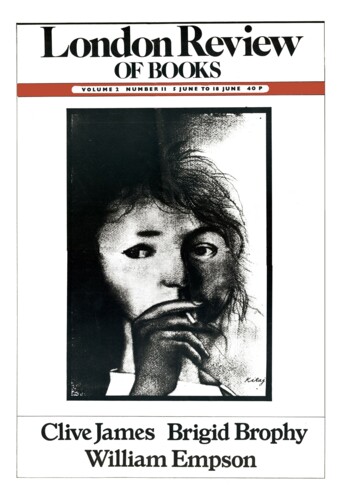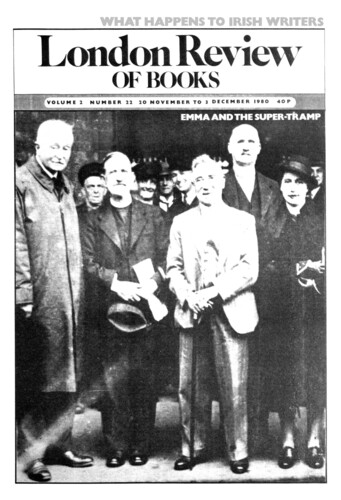Accessibility
Derek Mahon, 5 June 1980
It would be disingenuous of me to pretend that I have taken the full measure, or anything like it, of Middleton’s Carminalenia, an intensely difficult collection about as far removed from ‘mainstream’ English poetry as it’s possible to be and yet remain, in part at least, accessible. I say ‘in part at least’, but the fact is that Middleton, to me at any rate, is more often inaccessible than not. There are notes, but the help they offer is slight. He has, of course, always been an ‘experimental’ poet, in that he has eschewed predictable patterns of thought and structure. He offers the reader little technical consolation – almost, it seems, as a matter of policy; and no doubt there is much to be said for this. Yet it would be a mistake to conclude, as philistine critics used to do of ‘modern’ art, that he doesn’t produce well-made poems because he can’t. On the contrary, one has the distinct sense that here is a poet who has chosen to write in his own peculiar, even rebarbative way because an inner poetic logic demands that he do so. It goes without saying that his oblique and perhaps innovative purposes are to be taken entirely seriously – though I’m happy to report that a flickering and elusive sense of fun, as of a preoccupied man suppressing manic laughter, makes an occasional and intriguing appearance.





